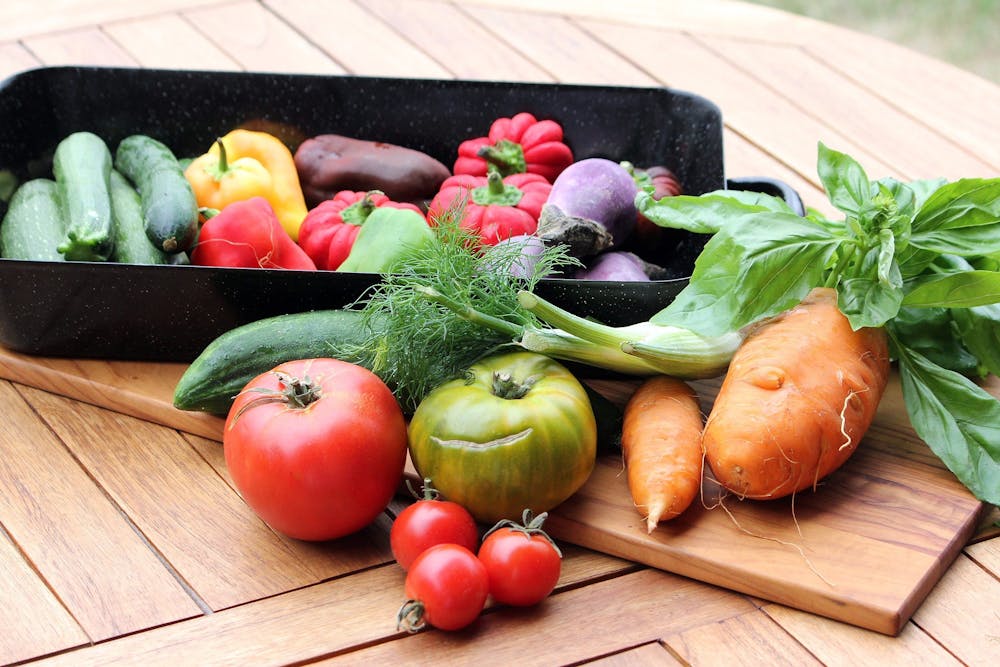Whether you’re munching on hot Cheetos or downing a Monster at 1 a.m., it is easy to neglect your diet during finals season. Often we get so caught up in our workload that we skip meals, and when we finally have the time to eat, we reach for comfort foods and skip the salad. Yet as finals approach, students should be mindful of eating balanced meals.
In a 2017 review published in Healthcare, researchers from the University of Newcastle examined the relationship between dietary intake and academic achievement in university and college students.
The majority of their studies reported statistically significant positive associations between dietary intake and academic achievement. There is also evidence that those who consumed breakfast regularly had higher academic achievement.
One of the reasons behind the association between diet and academic achievement is that micronutrients such as folate, iron and omega 3 fatty acids are essential for brain development and functioning. Additionally, since the brain requires regular amounts of energy to function, it makes sense that eating regular meals may improve academic performance. By eating a balanced diet, students can obtain the nutrients they need for their brain and body’s functions, thus improving their health and academic performance.
To ensure that you are eating a balanced meal, you can follow the Healthy Eating Plate, a template that Harvard Medical School created for a balanced meal. A healthy meal consists of roughly half fruits and vegetables, a quarter whole grains, a quarter protein, healthy plant oils in moderation and beverages such as water, coffee or tea. It is clear that you should primarily be eating unprocessed foods such as fresh fruits and vegetables.
When choosing fruits and vegetables, you should aim to eat a variety of colors. According to the American Heart Association, eating a variety of colorful fruits and veggies is the best way to get the vitamins and minerals you need, because different colored foods contain different nutrients. For example, red foods contain antioxidants such as lycopene and anthocyanins, whereas dark greens contain folate, which promotes heart health. Antioxidants are substances that protect your body from free radicals, which are molecules that disrupt normal cell functioning, leading to aging, heart disease, cancer and other diseases.
As Hopkins students, it’s not always easy to follow the Healthy Eating Plate due to limited dining options, especially if you are not cooking for yourself. However, there are still plenty of nutritious options available.
For example, you can make your own breakfast smoothie with bananas, blueberries, cantaloupe, spinach and yogurt at CharMar. Furthermore, your body will absorb the nutrients that you drink in the smoothie more quickly than they would if you had eaten the fruits individually, since they have already been partially processed by the blender.
You can also make a salad at the Fresh Food Cafe.
Freshman Sonal Sinha said that her favorite salad to make includes lettuce, spinach, cherry tomatoes, broccoli, olives, bell peppers and feta cheese. On the side, Sinha likes to add nutritious sources of carbohydrates such as squash, wild rice and lentils.
“The way I eat really affects my mood and how motivated I am. I prefer meals that are filling yet light because if I eat super greasy food, I feel lethargic,” Sinha said in an interview with The News-Letter.
The science behind feeling slow after eating a greasy meal is that fats slow down digestion, so a high-fat meal takes longer to digest. On the other hand, plant-based foods are digested much more quickly than foods high in protein and fats. Thus, to avoid feeling slow on the day of an exam, students may find it helpful to eat meals that are relatively low in fat.
On exam day, it is particularly important to eat a healthy breakfast. Sophomore Matthew Tajanlangit realized this and so aims to eat a nutritious breakfast rather than squeezing in a couple more minutes of sleep this finals week.
“I almost always skip breakfast and don’t eat until lunch. My main goal for this exam season is to try and actually eat breakfast rather than staying in bed longer. I’ll probably try cereal and yogurt,” he said.
Keeping the Healthy Eating Plate in mind, some healthful breakfast options include yogurt topped with fruit and nuts, oatmeal with fruit or a vegetable omelette.
This exam season, students should try to eat meals that are high in antioxidants and healthy proteins and fats.















